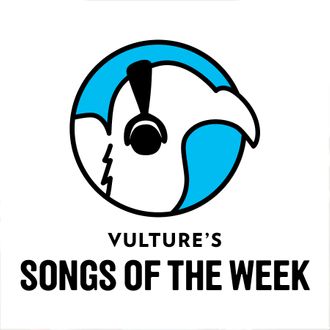
Every week Vulture highlights the best new music. If the song is worthy of your ears and attention, you will find it here. Read our picks below, share yours in the comments, and subscribe to the Vulture Playlist for a comprehensive guide to the year’s best music.
Rae Sremmurd ft. Future, “Buckets”
Something is seriously screwed with the melody on “Buckets”: It sounds like a piano being tuned. It feels like the notes aren’t even chromatic. They sound like quarter-notes, stuff that can’t be charted easily on the staff. Anyway, it turns out that such disharmony can be super compelling. If you strap an 808 and a hard drumline under it as producer Mike Will Made It does, thread survival-themed lyrics from Future and Slim Jxmmi through it, and top it off with some victory-lap bars from Swae Lee, you’ve got a banger for the ages. It’s the kind of track that refuses to settle down, and that intransigence is precisely what keeps the listener coming back for more. —Frank Guan (@frankophilia)
Troye Sivan, “Bloom”
One of my favorite pieces we’ve ever dropped on vulture.com was our list of the 50 Best Modern Songs That Sound Like the ’80s. Every year since, I’ve wanted to update it, because every year there are 50 more that qualify. The latest is Troye Sivan’s deliciously lush new single “Bloom” which sounds like what I’ve always envisioned Madonna and Cyndi Lauper giving each other an orgasm would sound like. (Yes, these are the things I think about.) And I mean, is Troye Sivan not their musical love child? “Bloom” contains one of the best hooks of the year so far (“I BLOOM JUST FOR YOU!!!!”), second only to every other hook on that stellar Hayley Kiyoko album. This is pop candy and I expect to hear its sugary waterfall spilling out from every float at Pride this year or I will riot. —Dee Lockett (@Dee_Lockett)
Ebhoni, “Opps”
How does a song become a summer jam? Is it one as soon as it pops into existence? Does it have to be crowned one through ubiquitous love? Is it actually just about omnipresence? Whatever the case, the result is the same: We all end up looking back at the warmer months pretty sure that we know the dominant song in the entire country, geography and demographics be damned. But what about those songs that evoke the vibe of summer but probably aren’t going to reach “Despacito”-level ubiquity? Enter “Opps” by the Toronto-based artist Ebhoni, who sings about backstabbing over a beat that sounds like clouds look. This isn’t going to be the biggest song of the summer, but it sounds like it should be. —Sam Hockley-Smith (@shockleysmith)
Erin Rae, “Bad Mind”
One of Nashville’s growing group of talented female singer-songwriters, Erin Rae is a master at blending sweet melodies with surprisingly melancholy, introspective, and very perceptive lyrics. “Bad Mind,” the fourth release from her upcoming album Putting on Airs, is no exception. As with many of her best songs, the gentle instrumentation and timbre of voice on “Bad Mind” belies the difficult nature of the song’s subject matter, which focuses on Rae’s struggles with her sexuality and fears of coming out as a teenager growing up in Tennessee. “Remember when you tried to hold my hand / And I acted like I thought you were playing / But I knew just what you were saying / Doing that,” she recalls in the song’s third verse, capturing the subtle, but powerful conflict involved in these teenage romantic interactions. —Corinna Burford (@coriburford)
Tirzah, “Gladly”
You never know what you’re going to get when you listen to music made by Mica Levi. Maybe it’ll be a ramshackle version of punk; or a terrifying score to a movie about an alien roaming Glasgow, dragging men into an inky void; or maybe it’ll be “Gladly,” the first single from the album she and Tirzah wrote and produced together. Tirzah is unmistakably the star here — half-singing over a warbled stomp of an instrumental that offers an illusion of negative space without actually giving any. —SHS
Florence + the Machine, “Hunger”
Some of us keep ourselves so starved for love, we can never really fill the void. The deprivation starts early for some (for Florence Welch, she tells us it was 17), we’re conditioned to make it that way. The kind of nourishment both I and Florence are talking about can’t be fed to us from anyone but ourselves, which makes it harder than any other form of love to sustain. She sings (celestially, as always) of failing to comfort herself with fans, with drugs, with men, only to realize that it’s better to look inward and fatten up on loving who you are, exactly as you are. I appreciate that Florence was inspired by this youngest generation’s confidence — or at least their performative confidence — to write this song because she doesn’t know it yet, but they learned it, in part, from her. –DL

